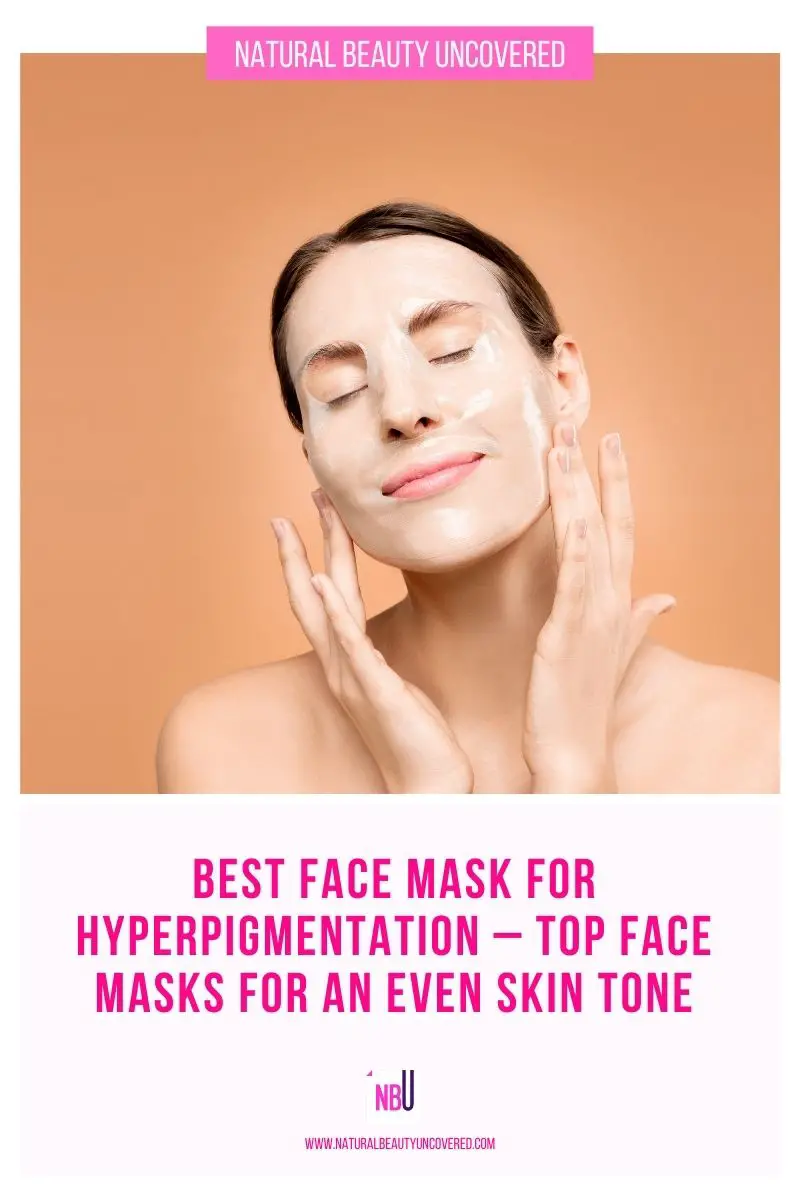Pigmentation issues can significantly affect one's self-confidence and skin health. If you're looking for the best face mask for pigmentation, you're not alone. Many individuals worldwide are searching for effective skincare solutions to combat unwanted dark spots, hyperpigmentation, and uneven skin tone. This article will provide an in-depth guide to help you make an informed decision when selecting the right face mask for your skin.
Understanding the root cause of pigmentation and how it affects your skin is crucial in choosing the best face mask. Pigmentation occurs due to an overproduction of melanin, which can result from sun exposure, hormonal changes, or inflammation. As such, selecting a face mask that addresses these underlying issues is vital.
In this comprehensive guide, we will explore the top face masks available on the market, their active ingredients, and how they work to reduce pigmentation. Whether you're dealing with age spots, post-acne marks, or melasma, this article will equip you with the knowledge to choose the best face mask for your specific needs.
Read also:What To Wear With Brown Corduroy Pants Women A Comprehensive Style Guide
Table of Contents
- Understanding Pigmentation
- Top Face Masks for Pigmentation
- Key Ingredients to Look For
- Homemade Face Masks for Pigmentation
- Incorporating Face Masks into Your Skincare Routine
- Precautions and Tips
- Comparison of Popular Brands
- The Science Behind Pigmentation
- Expert Advice on Pigmentation
- Conclusion and Call to Action
Understanding Pigmentation
What Causes Pigmentation?
Pigmentation refers to the discoloration of the skin, often appearing as dark spots, patches, or uneven tones. The primary cause of pigmentation is the overproduction of melanin, the pigment responsible for skin color. Factors such as excessive sun exposure, hormonal imbalances, and skin inflammation can trigger this process.
Key Causes:
- Sun Damage: UV rays stimulate melanin production, leading to dark spots.
- Hormonal Changes: Fluctuations in hormones, especially during pregnancy or menopause, can cause melasma.
- Post-Inflammatory Hyperpigmentation (PIH): Occurs after acne or skin injuries heal.
Types of Pigmentation
There are several types of pigmentation, each requiring a different approach to treatment:
- Age Spots: Also known as liver spots, these are caused by prolonged sun exposure.
- Melasma: Hormonal pigmentation commonly seen during pregnancy.
- Post-Acne Marks: Resulting from acne or skin inflammation.
Top Face Masks for Pigmentation
1. Vitamin C Face Masks
Vitamin C is a powerful antioxidant that helps brighten the skin and reduce pigmentation. It inhibits the enzyme tyrosinase, which is responsible for melanin production. Some of the best Vitamin C face masks include:
- Skinceuticals C E Ferulic Mask: Combines Vitamin C, Vitamin E, and Ferulic Acid for enhanced efficacy.
- Paula's Choice C15 Booster Mask: A budget-friendly option with stable Vitamin C.
2. Retinol-Based Masks
Retinol is a form of Vitamin A that promotes cell turnover and reduces pigmentation. It's particularly effective for age spots and melasma. Popular options include:
- RoC Retinol Correxion Mask: Gentle yet effective for sensitive skin.
- Neutrogena Rapid Wrinkle Repair Mask: Affordable and widely available.
Key Ingredients to Look For
Niacinamide
Niacinamide, a form of Vitamin B3, helps regulate melanin production and improve skin texture. It's a staple ingredient in many face masks designed for pigmentation.
Read also:Preppy Work Outfits A Comprehensive Guide To Elevate Your Professional Style
Alpha Hydroxy Acids (AHAs)
AHAs, such as glycolic acid and lactic acid, exfoliate the skin and promote cell renewal, reducing the appearance of dark spots.
Homemade Face Masks for Pigmentation
If you prefer natural remedies, here are some homemade face masks you can try:
- Lemon and Honey Mask: Lemon juice contains citric acid, which can lighten pigmentation, while honey hydrates the skin.
- Cucumber and Aloe Vera Mask: Both ingredients soothe the skin and reduce inflammation.
Incorporating Face Masks into Your Skincare Routine
Using a face mask once or twice a week can significantly improve pigmentation. Follow these steps for optimal results:
- Cleanse your face thoroughly.
- Apply the mask evenly, avoiding the eye area.
- Leave it on for 15-20 minutes.
- Rinse with lukewarm water and follow up with a moisturizer.
Precautions and Tips
Avoid Sun Exposure
Protecting your skin from UV rays is essential in preventing pigmentation. Always wear sunscreen with at least SPF 30.
Consult a Dermatologist
If your pigmentation is severe or persistent, consider consulting a dermatologist for personalized advice.
Comparison of Popular Brands
Here's a comparison of some popular face mask brands for pigmentation:
- Skinceuticals: High-end, clinically proven results.
- Paula's Choice: Affordable, science-backed formulations.
- Neutrogena: Budget-friendly, widely available.
The Science Behind Pigmentation
Pigmentation occurs when melanocytes, the cells responsible for producing melanin, become overactive. This can be triggered by various factors, including UV radiation, hormonal changes, and skin trauma. Understanding the science behind pigmentation helps in selecting the right treatment.
Expert Advice on Pigmentation
According to dermatologists, consistency is key when treating pigmentation. Using a face mask regularly, along with other skincare products, can lead to visible improvements over time. Additionally, maintaining a healthy lifestyle and a balanced diet can support skin health.
Conclusion and Call to Action
Choosing the best face mask for pigmentation requires understanding your skin type and the underlying causes of your pigmentation. Whether you opt for a high-end Vitamin C mask or a natural homemade remedy, consistency and sun protection are crucial for achieving brighter, more even skin.
We encourage you to share your experiences with pigmentation treatments in the comments below. Additionally, explore our other articles for more skincare tips and advice. Together, let's achieve healthier, more radiant skin!


